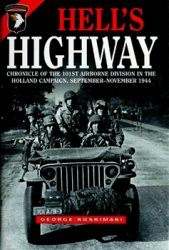Main Idea
As U. S. casualties mounted in Vietnam, a growing number of Americans voiced their opposition to the war.
Fter Tet, criticism of American involvement in Vietnam increased. One of the nation's most trusted news broadcasters, Walter Cronkite, reported:
> Antiwar button

Reading Strategy
Organizing Information As you read about protest at home against the Vietnam War, use a diagram like the one shown here to list the reasons why some Americans opposed the war.


Objectives
After studying this section, you should be able to
? list reasons for opposition to the war.
? describe the values and beliefs of the youth counterculture.
Key Terms
Student deferment, conscientious objector, teach-in, commune, counterculture
Hearing Cronkite's broadcast, President Johnson turned to his aides and said, "It's all over." He recognized that he had lost the battle for public opinion.
Ii
We have too often been disappointed by the optimism of the American leaders to have faith any longer in the silver linings. . . . To say that we are closer to victory today is to believe, in the face of evidence, the optimists who have been wrong in the past. To suggest we are on the edge of defeat is to yield to unreasonable pessimism. To say that we are mired in stalemate seems the only realistic, yet unsatisfactory conclusion.
Gradually, as America moved deeper into the Vietnam War, opposition grew. The United States's reasons for fighting in Southeast Asia began to be questioned.
Beginning in January 1966, the Senate Foreign Relations Committee held "educational" hearings on Vietnam. The televised hearings carried the senators' doubts about the war to millions of American homes.

Before long, Americans became divided into two groups. Those who supported the war were called "hawks" and those who opposed, "doves." For a long time, polls showed that most Americans sided with the "hawks." But doubts began to grow. By May 1967, even Secretary of Defense Robert McNamara had begun to question America's role in the war.
Many of those opposed to the war were students who openly protested America's involvement in Vietnam. The antiwar movement was centered on college campuses, which had also been the source for activists in the civil rights movement.
A number of the antiwar protests focused on the draft. Many of those facing the draft did not understand why the war was being fought or why they should go. Students also protested against the government's unfair practices. A person with a limited education from a low-income family was far more likely to be sent to fight in Vietnam than someone with a good education from an upper-income family, and African American soldiers made up a disproportionately large number of American soldiers fighting overseas.
One policy that contributed to this inequity was the practice of giving student deferments. Young men were safe from the draft as long as they were enrolled in college. In 1966 alone, there were 1.8 million deferments. Some men who did not serve were conscientious objectors. They received this status by belonging to an organized religious body with pacifist views. About 500,000 young men simply refused to report when they were drafted. Some fled to other countries, such as Canada or Sweden. Around

A Demonstrations AND Confrontation Reacting against the antiwar demonstrations, many Americans began to counter with demonstrations in support of American troops. Many antiwar demonstrations were accompanied by vioience. in May 1970, six students were killed during separate confrontations at Jackson State and Kent State (above right). Why did many students protest the war?
3,000 young men went to prison rather than fight in a war they opposed. Some antiwar protesters used the tactics of civil disobedience and demonstrations that they had learned from the civil rights movement.
Visualizing
(t/istory

THAPTER23 The Vietnam Era: 1954-1975
709
Linking Pastand Present
????????????? I

M Collection of veteran’s items
Surviving the War
The military kept accurate records of Americans who died fighting in Vietnam. No one, however, was keeping track of what happened to those who survived.




 World History
World History









